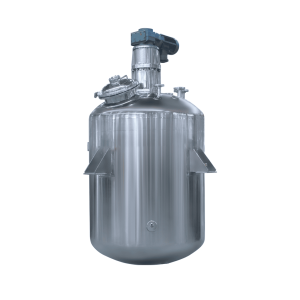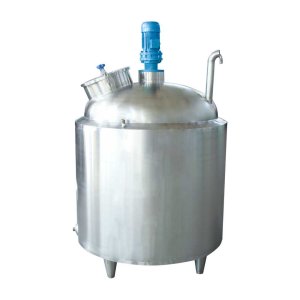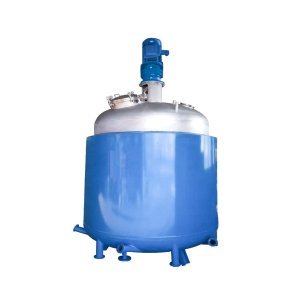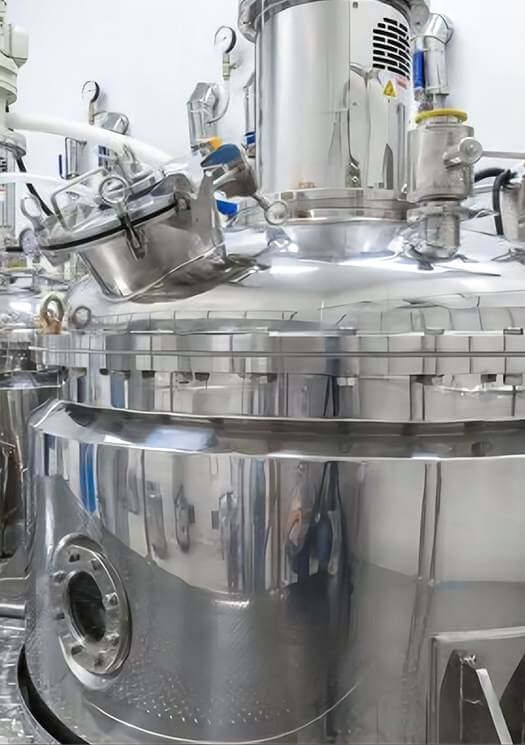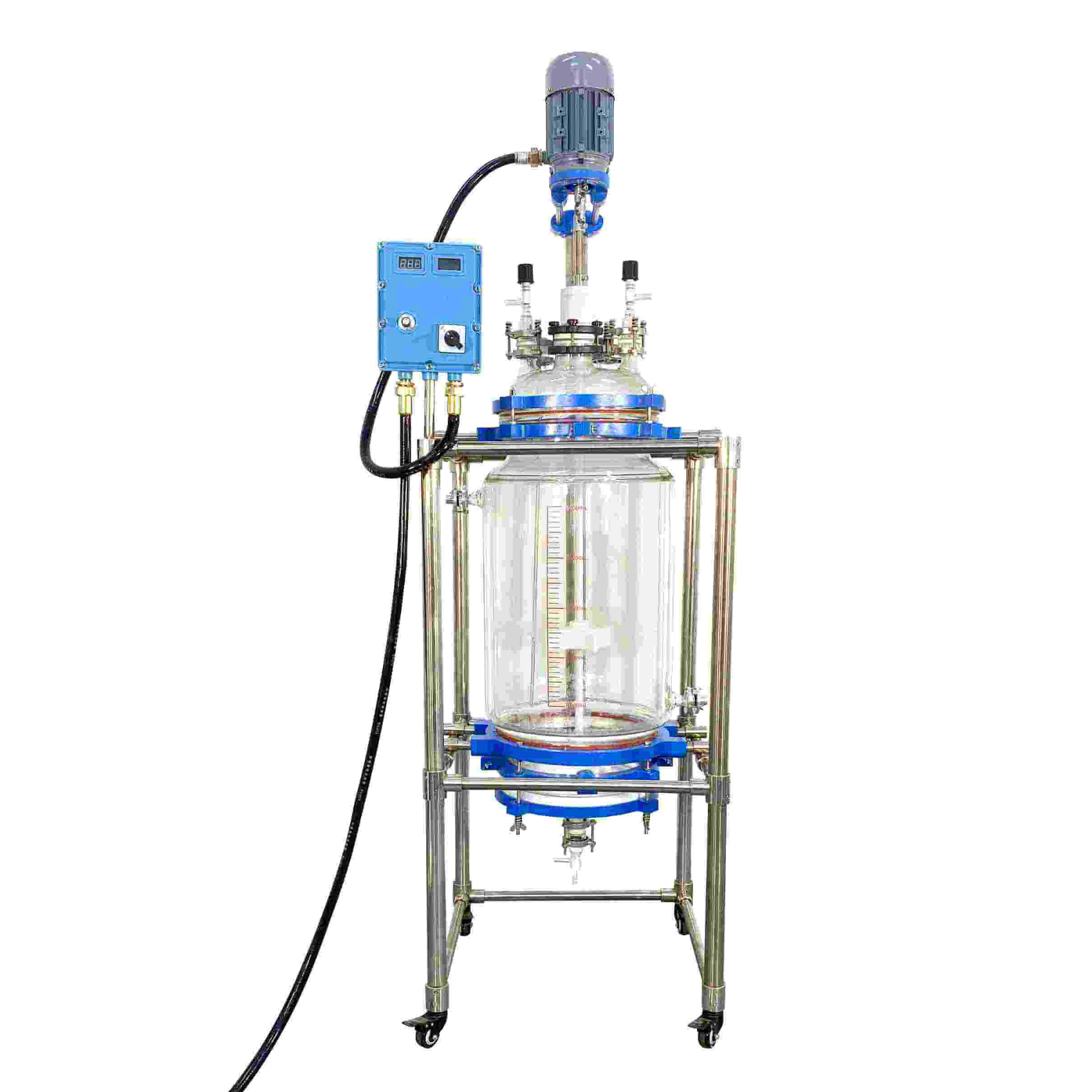
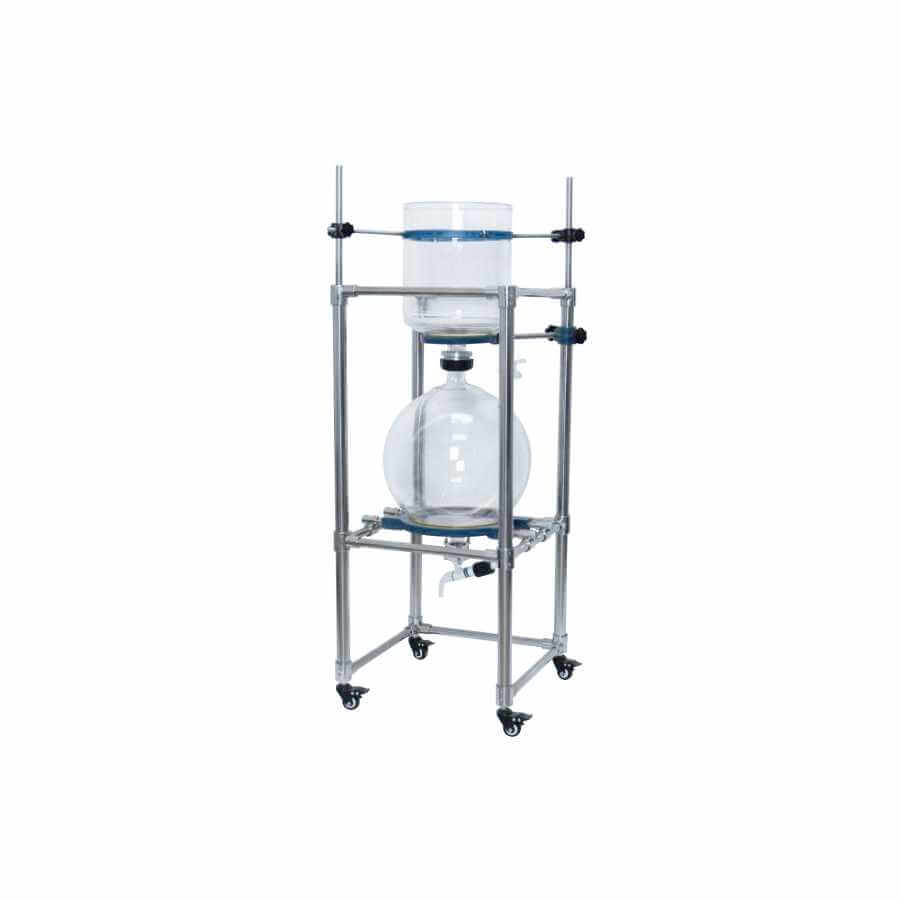
Glass Reactor
Glass reactors: used in chemical reactions, drug research and development, fine chemicals, food manufacturing, and other fields.
Material
glass
Capacity (L)
10-10000+
Mixing system
anchor, paddle, frame and others
Heating system
electric heating, oil heating and others
RUNGYU glass reactors are commonly used biochemical instruments and are widely used in modern fine chemicals, biopharmaceuticals, scientific research and experiments, and other industries. They can be used for concentration, distillation, reflux, separation, and purification reactions under the conditions of constant speed, constant force, and constant temperature. It is an ideal equipment for teaching, experiment, pilot test, and production.
Request a quoteThe double-layer glass reactor produced by RUNGYU has a temperature resistance range of -80~250℃. A corresponding low-temperature refrigeration cycle system can be selected during refrigeration, and the low temperature can reach -80°C. Heat carriers such as steam, hot water, and thermal oil can be used for heating, and the high temperature can reach 250°C. During normal use, the reaction is carried out under normal pressure or negative pressure, but it can also be evacuated for vacuum reaction during use.

Precautions for using a double-layer glass reactor
1.Check the instrument carefully before use to see if the glass bottle is damaged and whether the interface is consistent, and be careful to handle it with care.
2.Wipe each interface with a soft cloth (you can use a napkin instead), and then apply a little vacuum grease. Be sure to cover it with vacuum grease after use to prevent lime and sand from entering.
3.The interfaces of the double-layer glass reactor should not be tightened too tightly and should be loosened regularly to avoid long-term locking and connector jamming.
4.First turn on the power switch, and then let the double-layer glass reactor run from slow to fast. When the double-layer glass reactor stops, keep it in the stopped state and then turn off the switch.
5.Do not tighten the PTFE switches everywhere, as this can easily damage the glass.
6.After each use, various oil stains, stains, and solvent residues left on the surface of the double-layer glass reactor must be wiped off with a soft cloth to keep it clean.
7.Unscrew each PTFE switch after parking. The PTFE piston will deform if it continues to work for a long time.
8Clean the sealing ring of the double-layer glass reactor regularly. The method is: remove the sealing ring, check whether there is dirt on the shaft, wipe it with a soft cloth, then apply a little vacuum grease and reinstall it to maintain the fit of the shaft. The sealing ring is smooth.
9.Water must not enter the electrical part, and it is strictly prohibited to get damp.
10.When repairing or inspecting the double-layer glass reactor, be sure to cut off the power and water source first.
RUNGYU is a company that owns several chemical reactor manufacturers and suppliers with independent invention patents. For the reaction and stirring of chemicals, Runyu has many types of chemical reactors, such as stainless steel reactors and glass reactors. , jacketed reactor, etc.

